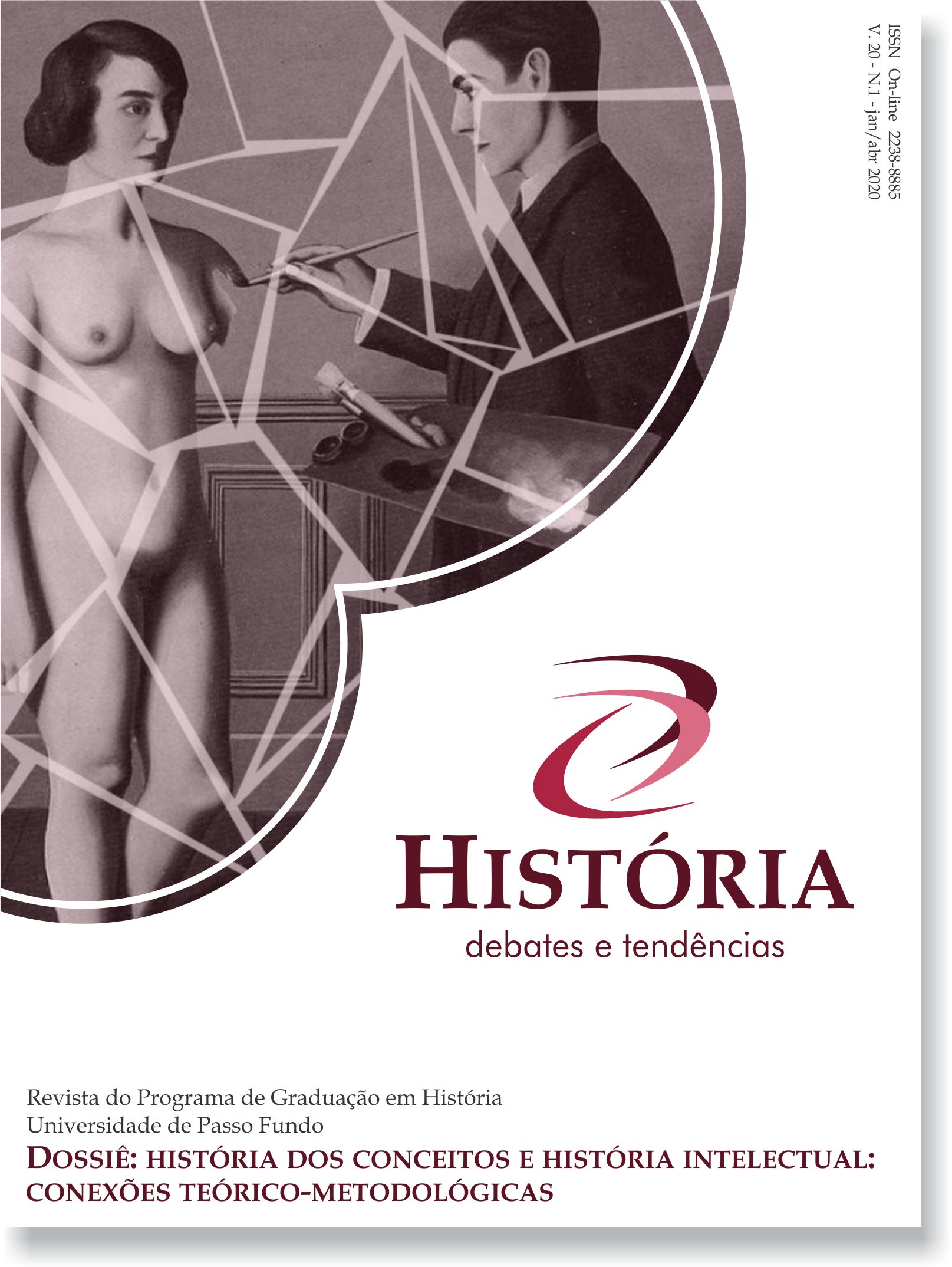Concepts, intellectuals and ideas: the intertwining of different dimensions of the field of history, in the case of the debate between Eugênio Gudin and Celso Furtado (1950-1964)
DOI:
https://doi.org/10.5335/hdtv.1n.20.10412Keywords:
Concepts, Ideas, IntellectualsAbstract
As important as the theoretical framework may be, within historical research, the object analysis must be treated as the main focus of the historian’s office. The object directs us to the theoretical frameworks. Having this as a premise, when analyzing a debate between two great Brazilian intellectuals, Celso Furtado and Eugênio Gudin, in the 1950s and 1960s, it is clear the need to resort to different dimensions of the history’s field, especially when observing the construction of different conceptions of the dynamics of history, found in both ideas, Furtado’s developmentalism and Gudin’s liberalism. Thus, there is no way to understand this debate without, first, resorting to the principles of the history’s concepts, the tools of the history of intellectuals, in order to understand the dynamics of the history of these ideas in political life, and in the intellectual history of Brazil.
Downloads
References
BARROS, José D’Assunção. Teoria da história. Petrópolis: Vozes, 2013.
BIDERMAN, Ciro; COZAC, Luis Felipe L.; REGO, José Marcio. Conversas com economistas brasileiros. São Paulo: Editora 34, 1996.
BIELSCHOWSKY, Ricardo. Cinqüenta anos de pensamento da Cepal. Rio de Janeiro: Record, 2000.
DOSSE, François. La marcha de las ideas: historia de los intelectuales, historia intelectual. València: Universitat de València, 2007.
FURTADO, Celso. A fantasia organizada. Rio de Janeiro: Paz e Terra, 1985.
FURTADO, Celso. Obra autobiográfica. Rio de Janeiro: Paz e Terra, 1997. v. 1.
FURTADO, Celso. Formação econômica do Brasil: edição comemorativa, 50 anos. Apresentação Rosa Freire d’Aguiar Furtado. Introdução Luiz Felipe de Alencastro. São Paulo: Companhia das Letras, 2009.
GUDIN, Eugênio. Para um Brasil melhor. Rio de Janeiro: APEC, 1970.
GAMBA, Juliana C.; SMANIO, Gianpaola P. Desenvolvimento econômico e o desafio da integração social na América Latina: o Mercosul e a Unasul. Revista de Direito Constitucional e Internacional, São Paulo, v. 96, jul-ago, p. 1-16, 2016.
KOSELLECK, Reinhart. Futuro passado: contribuição à semântica dos tempos históricos. Rio de Janeiro: Contraponto; Editora PUC-Rio, 2006.
LOUREIRO, Maria Rita. Os economistas no governo. Rio de Janeiro: FGV, 1997.
LOVE, Joseph L. A construção do terceiro mundo: teorias do subdesenvolvimento na Romênia e no Brasil. Rio de Janeiro: Paz e Terra, 1998.
MICELI, Sergio. Intelectuais à brasileira. Rio de Janeiro: Companhia das Letras, 2001.
SIMONSEN, Roberto C.; GUDIN, Eugênio. A controvérsia do planejamento na economia brasileira. Rio de Janeiro: IPEA, 1978.
SIRINELLI, J. Os intelectuais. In: RÉMOND, René (Org.). Por uma história política. Rio de Janeiro: FGV, 2003.
TODARO, Michael. A model of labor migration and urban unemployment in less developed countries. The American Economic Review, v. 59, n. 1, 1969.
TREBITSCH, Michel. Avant-propos: la chapelle, le clan et le microcosme. Les Cahiers de l’IHTP, Paris, n. 20, p. 11-21, març. 1992.
WEBER, Max. A ética protestante e o espírito do capitalismo. São Paulo: Livraria Pioneira, 1967.






